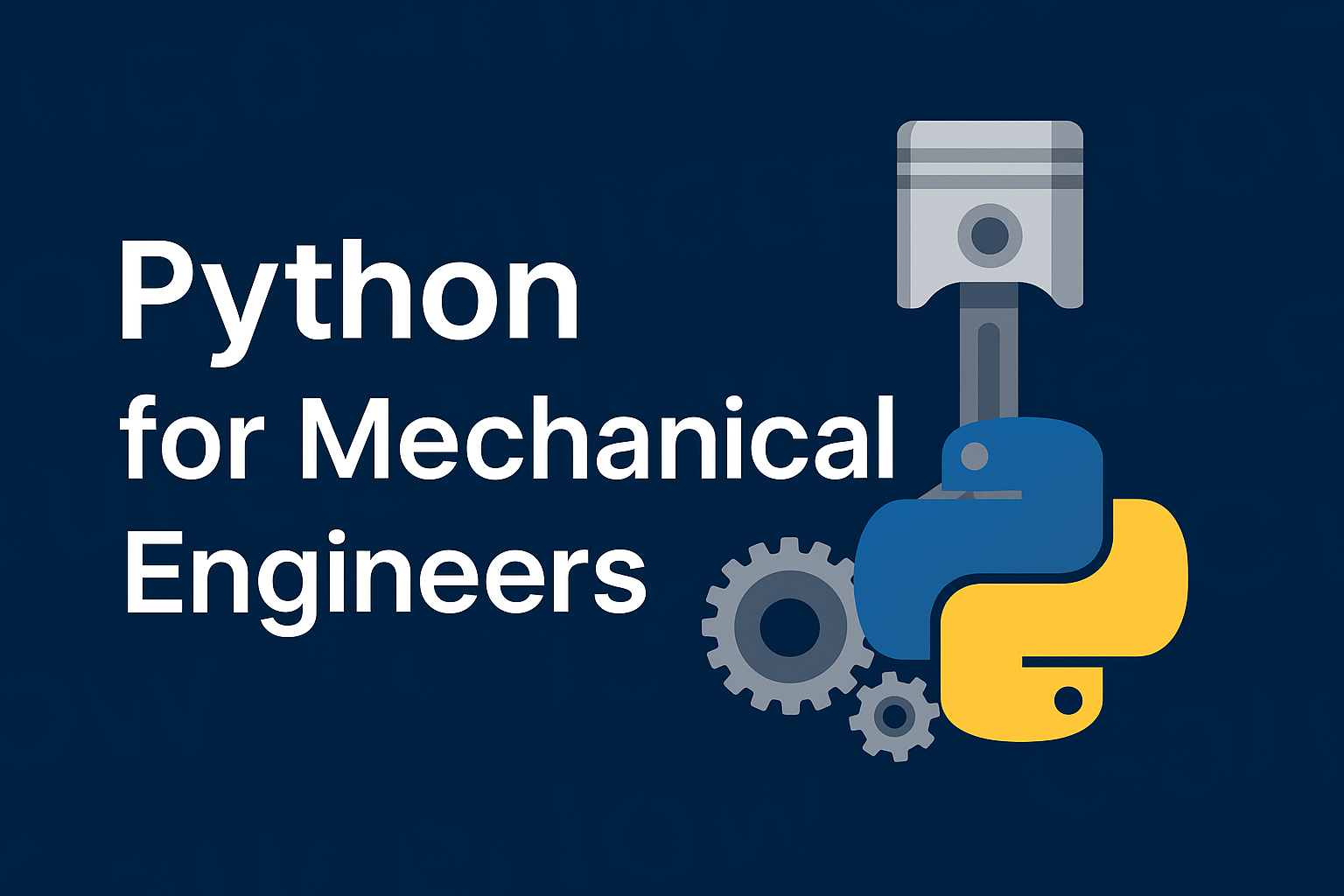Python for Mechanical Engineers & Practical Skills with GaugeHow


Mechanical Engineering Online Courses are no longer just an alternative to classroom learning – they have become a primary way for students and entry-level engineers to get the right industry skills. The engineering field, specially mechanical, is moving fast with new tools, techniques and automation. Today, companies expect fresh graduates to not only know theory but also handle modern software, machines and quality systems.
That’s where GaugeHow steps in. An affordable, student-focused learning platform, GaugeHow offers practical and self-paced courses that bridge the gap between college education and real-world requirements. With 30+ specialized courses in design, manufacturing, quality, Industry 4.0, robotics and more — it gives learners a full package for career growth.
Why Industry-Relevant Skills Matter
Mechanical engineers face a constant challenge – technology keeps evolving. New design software, CNC machines, quality standards, and automation processes appear every few years. If you want to stay competitive, learning never stops. Unfortunately, many college programs still focus mostly on theory. Students graduate without hands-on exposure to tools they’ll actually use in a job.
Platforms like GaugeHow solve this by offering free mechanical engineering courses for beginners and paid advanced programs for serious learners. This approach lets anyone start at zero cost, then upgrade for lifetime access if they want deeper skills.
A Wide Range of Learning Paths
One strong point about GaugeHow is variety. The courses are not limited to one field — they cover CAD tools like AutoCAD, SolidWorks and Fusion 360, quality modules like GD&T and CMM, manufacturing topics like CNC programming and Lean tools, and even futuristic tech such as Digital Twin, 3D Printing and Mechatronics.
Among these, Python for Mechanical Engineers is gaining huge popularity. Earlier, programming wasn’t considered essential for mechanical engineers, but with Industry 4.0, automation, and data-driven manufacturing, it’s becoming a must-have skill. This course shows you how to use Python for automation tasks, data analysis, and simulation work — all with examples related to mechanical applications, so you’re not learning generic coding, but exactly what’s relevant.
Bridging the Gap Between College & Industry
Let’s be honest — most freshers feel a little lost in their first job. You know the formulas, you can pass exams, but when it’s time to set up a CNC machine or inspect a component with a CMM, you hesitate. GaugeHow designs its courses to remove this hesitation. You learn with examples, case studies, and practical assignments so you’re not surprised when you see the same process in the workplace.
Take Engineering Metrology for example — it’s not just about measuring parts. The course teaches you real-world inspection techniques, ISO standards, and how these skills are applied in manufacturing industries. Many learners say this one course alone helped them get shortlisted in QA/QC job interviews.
Affordable and Flexible Learning
Another reason students love GaugeHow is pricing. Instead of paying separately for every skill, you can get Mech Premium — lifetime access to all 30+ courses, plus free future updates. Once you join, you don’t have to worry about monthly fees or losing access. For those not ready for lifetime, there’s a Mech Plus plan with 1-year access at a student-friendly rate.
And because all the courses are self-paced, you can learn from anywhere, anytime. Whether you’re a college student juggling classes or a working professional upgrading skills at night, the flexibility helps a lot.
Example Skills You Can Learn
Here’s a quick look at some in-demand skills from the platform:
-
AutoCAD for Mechanical Engineers – still the industry standard for drafting.
-
GD&T – critical for design and quality jobs.
-
CNC Programming – core for manufacturing roles.
-
5S & Lean Tools – helps in process improvement jobs.
-
Digital Twin & Industry 4.0 – future-proof tech skills.
-
Python for Mechanical Engineers – automation, data handling, simulations.
-
3D Printing – rapid prototyping for product development.
Who Should Join
If you’re in mechanical/core engineering, whether as a student or entry-level engineer, these courses can make a clear difference in your career. You’ll be ready for interviews, workplace challenges, and even independent projects. The learning style is simple, practical, and taught by professionals who’ve worked in the industry.
Final Thoughts
In today’s competitive job market, just having a degree is not enough. You need strong practical skills, the kind that get you noticed in interviews and help you deliver results at work. GaugeHow has made it easy for anyone to access such skills without spending a fortune or leaving their city.
From Mechanical Engineering Online Courses to focused subjects like Engineering Metrology and Python for Mechanical Engineers, the platform covers every corner of core engineering. With flexible access, expert-led content, and real-world applications, it’s a learning investment that can pay back many times over in your career.
If you’re serious about building industry-ready skills, it might just be time to log in, explore the free mechanical engineering courses, and take the next step toward becoming the kind of engineer companies compete to hire.
- Questions and Answers
- Opinion
- Motivational and Inspiring Story
- Technology
- True & Inspiring Quotes
- Live and Let live
- Focus
- Art
- Causes
- Crafts
- Dance
- Drinks
- Film/Movie
- Fitness
- Food
- Juegos
- Gardening
- Health
- Home
- Literature
- Music
- Networking
- Other
- Party
- Religion
- Shopping
- Sports
- Theater
- Wellness
- News
- Culture

